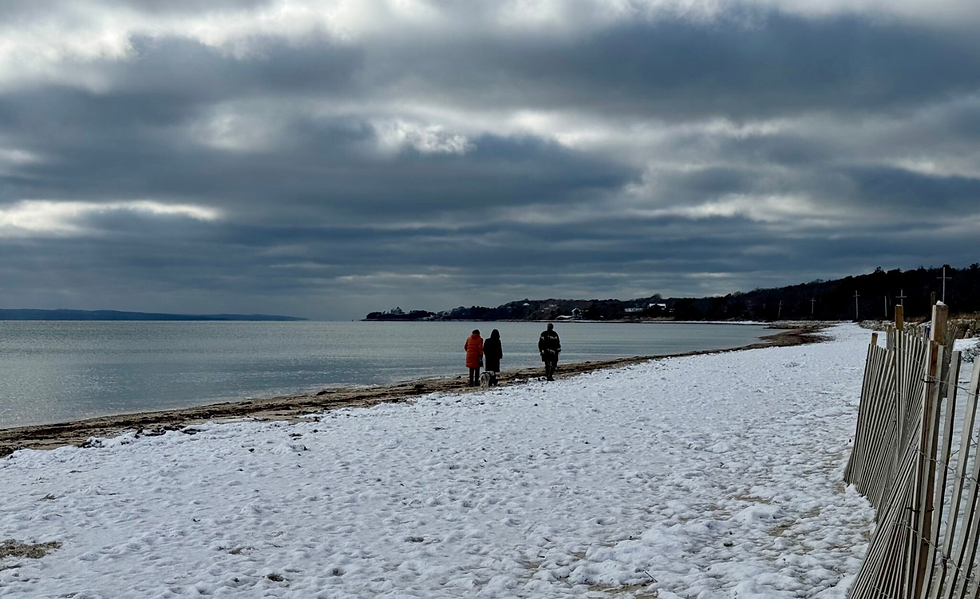Healthy Hearing Tips for Winter
- Advanced Audiology Assoc.

- Dec 19, 2017
- 3 min read

It may only be the first official day of winter, but we New Englanders know that the chilly season has only just begun. And whether we are hearing aid users or not, wintertime is a time we should take special care of our hearing health. Here are some of the precautions you can take.
Winter colds and infections
There really does seem to be a season for middle ear infections, and – you guessed it – it’s winter. But contrary to popular belief, cold weather itself does not cause ear infections. An ear infection is caused by bacteria in the upper respiratory system that travels up the Eustachian tube into the middle ear. So, the more likely precursor to an ear infection is a common cold, and the best way to protect yourself and others is to use best practices for staying healthy in general. This includes washing your hands often, staying away from people who are sick (or staying home if you are sick), and making sure you are eating right, staying hydrated and getting enough sleep.
Winter safety

According to a study by Johns Hopkins School of Medicine and the National Institute of Aging, there is a definitive link between individuals with untreated hearing loss and an increased risk of falling. There are several contributing factors, but regardless of one's hearing function, falls occur more often in the winter. We all need to be mindful when navigating snowy, icy or otherwise slippery conditions, but if your balance is compromised due to hearing loss, please take special care – and take your time.
Wintertime Noises
Jingle bells, sure. Snowblowers, not so much. As effective as they are at removing snow, snowblowers can emit sounds louder than 100 decibels. Permanent hearing loss can occur with prolonged exposure to noise at more than 85 db, so it's important to protect your ears if they are running often and nearby. A pair of foam earplugs is a simple solution, or you can wear noise-reducing headphones – or earmuffs if you're outside. If you use hearing aids, you can also use the memory setting features to program for aggressive noise reduction.
Winter travel

Whether you're a snowbird or taking a short trip, January, February and March are popular times to hop a flight and get away. To help prevent ear discomfort caused by sudden changes in altitude, there are a few things you can do:
First, take an over-the-counter decongestant – it will help shrink the membranes in your sinus and ears. For best results, start it the day before your flight and continue for one more day after you land.
You can also use a pediatric-strength nasal spray just before boarding and again just before landing; this will help open your Eustachian tube.
And, the benefits of chewing gum on an airplane are not a myth. This will also help open up your Eustachian tube.
Winter outdoor recreation
We are programmed to try and keep our hands and feet warm when it's cold outside, but too often we leave our head (or at least ears) unprotected. What's important to know is that keeping your ears warm isn't just for comfort, it helps keep them healthy. And if you work or play outside in the extreme cold consistently, your body could increase bone growth in the ear canal as a natural response to to cold wind and water. This growth (called exotosis – often known as "surfer's ear") helps block the cold, but it also creates a block in the ear which can cause ear infections and even hearing loss. The best way to protect the ears while you enjoy your favorite cold weather activities is to ask us about custom ear molds or swim molds.
Caring for your hearing devices in the winter
Sudden cold snaps or other temperature fluctuations can cause condensation inside your hearing devices, which may keep them from working properly. To protect your investment, running a hearing aid dehumidifier overnight will help remove moisture from the air. They are relatively inexpensive and come in a variety of styles.
And, the devices themselves are not the only piece of equipment than must be protected from excess moisture – the battery compartment must stay dry too. Wiping it down with a dry cloth before storing will help prolong the life and effectiveness of your hearing devices.




SCCS NJ offers a comprehensive resource on double eyelids, addressing common questions such as what is a double eyelid. Our expert-led content provides clarity on the anatomical differences between monolids and double eyelids, aiding individuals in making informed decisions about their cosmetic journey.